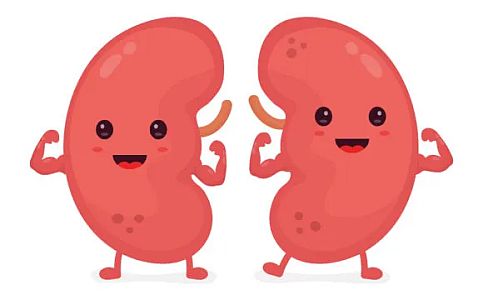The stones in the kidneys, also called kidney stones, is a
mass similar to stones that can be formed anywhere in the urinary
system. Generally, the stones in the kidneys are eliminated through the
urine, without causing symptoms, but in some cases, it can get stuck causing
intense pain and blood in the urine.
The treatment is done with the ingestion of abundant liquids
and medications, and in the most serious cases, it may be necessary to perform
surgery to remove the stuck stone.
Symptoms
The symptoms of kidney stones arise suddenly when the stone
is very large and gets stuck in the kidney, or gets stuck when it starts to go
down through the ureters to the bladder or when it causes an infection such as
pyelonephritis, says urologist in Dwarka.
A kidney crisis can vary over time, mainly in the location
and intensity of pain, but small stones do not usually cause problems and are
often only discovered during urine tests, ultrasound or radiography.
The place and the intensity of the pain can vary according
to the transit of the stone inside the organism, being of greater intensity
when it crosses the ureter until the bladder, to be eliminated altogether with
the urine, says urologist in Janakpuri.
In case the pain is very intense, do not calm down and there
is fever, vomiting, blood in the urine or difficulty urinating, you should go
to the doctor or to the kidney
hospital in Uttam Nagar so that exams are carried out and the kidney stone
treatment in Uttam Nagar is initiated as soon as possible.
Causes of kidney stones
The causes of kidney stones, also known as kidney stones,
can be related to little fluid intake, diet, genetic factors and some
diseases. Some of the causes are:
- Renal
Calcium Calculus : of hereditary origin and should be treated
with a diet with low sodium content and protein, recommending the intake
of diuretics. The treatment can be done through the reduction of the
consumption of foods rich in oxalates and fats, the intake of a calcium
supplement to facilitate the fixation of oxalate in the intestine says urologist
in Uttam Nagar.
- Renal
calculation of uric acid : it can be caused by a high consumption
of foods rich in proteins that generate the increase of uric acid in the
bloodstream. In this case the treatment can be done with the
ingestion of Allopurinol and with a diet with low purine content.
- Renal
calculation of cystine : of hereditary origin, can be treated
with a high intake of fluids, alkalis and D-penicillamine, when necessary.
- Renal
struvite calculation : can be caused due to the complication of
an infection in the urinary system. Kidney
stone treatment in Hari Nagar can be done through the
ingestion of antibiotics and surgery to remove the stones, because they
tend to be large.
When performing the tests that diagnose the kidney stone,
the urologist
in Hari Nagar can identify what type of calculation the individual
has, making an analysis of its composition, indicating the best
treatment. For all types of kidney stones, the main recommended kidney stone
treatment in Palam is the intake of approximately 3 liters of water
per day and a lot of rest, since hospitalization is not always necessary, since
the stones can be naturally expelled by the body.
In addition to this, stones in the kidneys can also be
caused by rare diseases such as primary or secondary hyperoxaluria, for
example. These diseases promote an accumulation of oxalate in the body due
to deficiencies in some enzymes that digest this compound, thus ending
overloading the kidneys, which leads to the emergence of these stones, says urologist in
Palam.
Treatment for kidney stones
Treatment during a kidney stone crisis should be indicated
by a urologist
in West Delhi and usually begins in the kidney
hospital in Hari Nagar through the use of intravenous analgesic
medications such as Tramadol and antispasmodic medications such as
Scopolamine. After a few hours, in which the pain picture improves, the
patient receives medical discharge.
At home the treatment is maintained with oral analgesics
such as Paracetamol, rest and hydration with around 2 L of water per day, to
facilitate the exit of the stones.There is also a home remedy that is widely
used to treat stones and is chancapiedra tea, has diuretic and analgesic
properties that facilitate the exit of them.
In the most serious cases, in which the stone is too large to
go out alone, it may be necessary to perform surgery or laser treatment to
facilitate its exit. During pregnancy, the treatment is done only with
analgesics and medical support.




